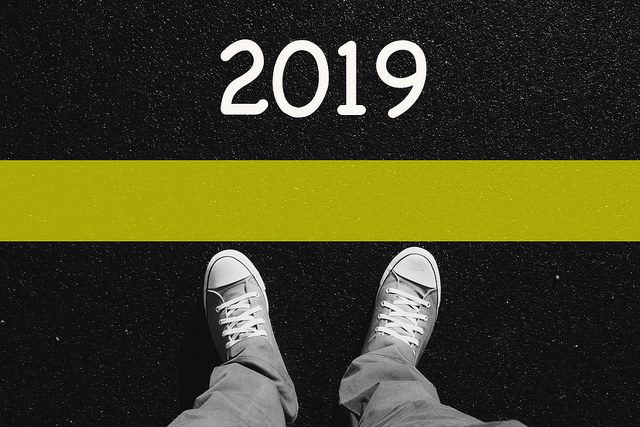Why I Don’t Like New Year’s Resolutions
By: Rochelle Perper, Ph.D. | January 4, 2019

If you’re anything like me, you don’t like New Year’s resolutions.
It’s natural at this time of year to reflect on the last twelve months and what we might do differently in the year to come. I do believe that this is a helpful practice, but I do not like the tradition of setting New Year’s resolutions. Why? Because a resolution is a firm decision to do or not do something. Therein lay the problem. The defining concept of resolution is to make a firm decision — something unrealistic considering the ever changing, unpredictable world we live in.
What’s Wrong with Resolutions?
Setting rigid and narrow goals for ourselves does us no good and often leads us to feeling “less than.” Resolutions introduce comparisons between where we are and where we think we should be. Rarely does life happen the way we imagine it, which is why making comparisons leads to heartache and disappointment.
Another problem with resolutions is that they tend to be about what we think we should do. Stop smoking? Start exercising? Eat healthy? These sound good on the surface, but we may not be committed to making these changes. Too often, we decide on resolutions by looking at other people’s expectations.
What to Set Instead?
I favor reflection and identifying areas of our lives we would like to improve. I believe there is always room to grow. I believe setting goals is a helpful practice. As such, I propose an improved way of doing this: set New Year’s intentions.
Intentions allow the flexibility we need to be successful and the introspection required to identify the things that are most important to us.
How-To Guidelines
Consider the following guidelines to ensure that your New Year’s intentions are the most helpful.
- Add meaning. Think about what you really want. Think about your internal needs, not what others expect you to do, but what will make you feel the most fulfilled. Sustainable change comes from something on the inside — the thing that gives you a sense of purpose and meaning.
- Start slowly. Set yourself up for success. It’s important. Start small by making incremental changes. You will build self-confidence this way and avoid the feelings of failure that can lead to abandoning your efforts. Seeing small victories leads larger ones to follow.
- Be flexible. Enough pressure exists in our lives to meet certain expectations. Too often we are too hard on ourselves. Rather than add to these pressures with narrow parameters, make your intentions more general to allow for the unanticipated twists and turns that life can throw our way. Instead of specific goals, think of themes that you would like to follow, such as “be open to new experiences,” “nurture friendships,” or “practice self-care.” With themes, you can be as flexible and creative as needed to take advantage of the circumstances of the moment.
When I reflect on this past year, I am astonished by the events that took place that I could not have anticipated. In fact, 2018 was NOTHING like what I thought it would be. Had I made a “firm decision” at the beginning of the year, I most certainly would not have succeeded in keeping it.
Example Intentions
Below are examples of intentions you might make for yourself. (I personally will be working on some of them in 2019.) I encourage you to consider them for yourself:
- Practice gratitude
- Love yourself
- Be present
- Speak kindly
- Move toward what gives you purpose and meaning
- Allow for more self-care
- Be deliberate in your actions
Research shows that setting an arbitrary date (such as January 1st) to make a change is not effective. Implementing your intention at the New Year is understandable to capitalize on the burst of motivation to get you started. However, be gentle with yourself. Allow time for your intention to deepen. Developing a new way of thinking takes time. So does adopting a different attitude. Without such internal shifts, external (behavioral) change is not possible. Working with a therapist is helpful during this process to provide the necessary guidance and support. Such professional help maintains focus on your intentions and results in creating balance.
I wish you and your loved ones a safe, healthy, and peaceful New Year.
Image: Marco Verch on flickr and reproduced under Creative Commons 2.0



